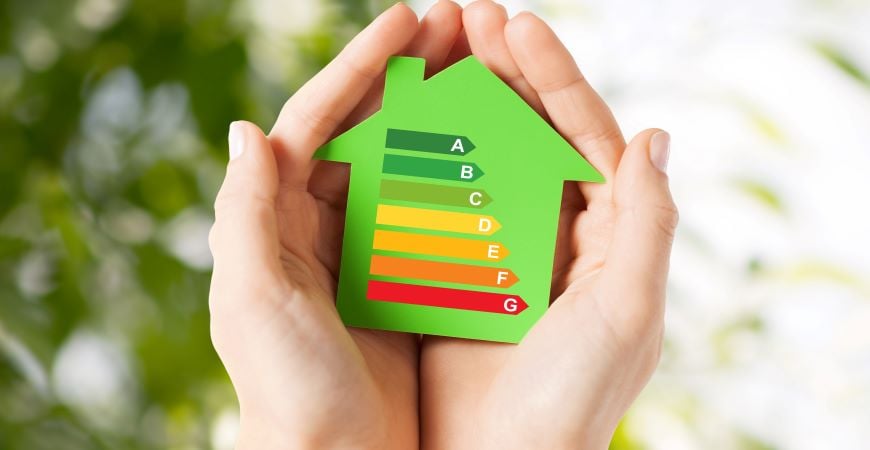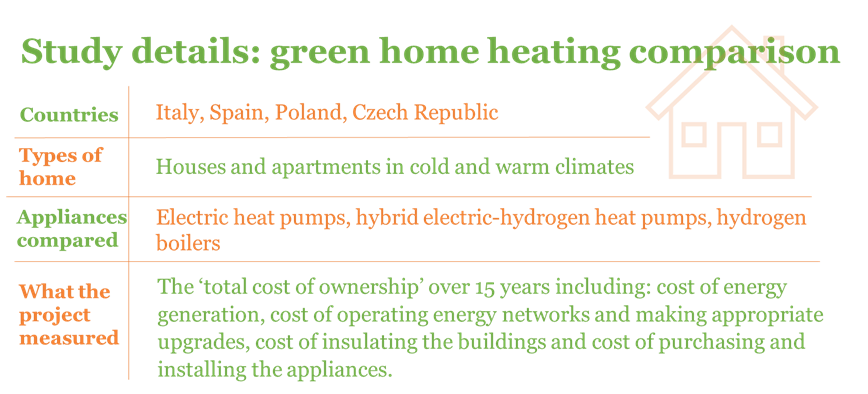This website uses cookies so that we can provide you with the best user experience possible. Cookie information is stored in your browser and performs functions such as recognising you when you return to our website and helping our team to understand which sections of the website you find most interesting and useful.
Electric heat pumps are cheapest low-carbon way to warm your home

The urgent need to tackle the climate crisis means we must change how we heat our homes. Polluting sources of home heat like gas need to be replaced by cleaner, greener and cheaper alternatives.
Consumers want to heat their homes without harming the environment, but currently millions rely on fossil fuels like gas. These fossil fuels emit carbon and pollution and expose people to unpredictable surges in price.
Green transition to low carbon home heat
Comprehensive changes to the way Europeans heat their homes
are on their way as the EU rolls out plans for greener and more efficient
heating alternatives. However, it can be expensive for households to invest in
new, greener systems. And in the hype around new technologies, it is challenging
for authorities to decide which option is best to back for long term gains.
Which is why the recent study commissioned by BEUC and carried out by Element Energy into the long term costs of new green heating
is so valuable for consumers and policy makers. Working with European consumer
groups, including Euroconsumers’ members OCU in Spain and Altroconsumo in Italy, this comparative study estimated the overall cost of different green heating
options in four countries to see which was best for the long term.

Electric heat pumps give most affordable green home heating
Electric heat pumps emerged as the most affordable green heating option in all four countries in terms of the ‘total cost of ownership’ over the time period. Renewable heat pump-powered district heating was found to be a competitive option in urban areas with high-density of population.
District heating distributes heat through pipes to multiple buildings, so consumers do not need to have their own individual systems. District heating powered by heat pumps is still in the early stages of development but is a promising option as it offers extra efficiency gains.
Hydrogen boilers and hybrid heat pumps (using hydrogen and electric power) were more expensive.
“This study clearly shows policy makers where investment for our green future should go – towards proven technologies and away from potentially costly experiments with unproven technologies”
Luisa Crisigiovanni, Euroconsumers Fundraising Programme Manager
We support the study’s recommendation that EU and national policies back a switch to electric heat pumps and end their reliance on hydrogen as a residential heating option, as it is not a cost-effective.
Added benefits of heat pumps and home energy efficiency
Heat pumps have an added advantage of working well with ‘smart heating’ tariffs by drawing on energy from the grid at a cheaper off-peak time. Using electricity in this way reduces the need for investments in electricity grids. Savings achieved from smarter and more efficient use of electricity grids can then be passed onto consumers.
As well as switching the source and type of energy, the study found that simple energy efficiency adaptations like insulation can make a big difference to bills. Small changes in warmer climates like using blinds more can also cut consumption and costs.
Financing options essential for consumers to switch to green residential heating
But all of the potential benefits of low carbon heating and lower bills can only be realised with initial upfront investment in heat pumps and energy efficiency improvements. The big upfront costs could put consumers off making the change.
For this reason, national governments and local authorities should give financial support to consumers to switch to electric heat pumps and improve the energy efficiency of their homes. Incentives and affordable tariffs also need to be in place to encourage the use of smarter, time-sensitive heating usage. This will create a virtuous circle by reducing the cost of operating the electricity network as a whole.
The results of this study will help consumers make decisions about the best low carbon alternative for their home needs. It also issues a strong message to policy makers to halt the prioritisation of hydrogen boiler and hybrid electric/hydrogen heat pumps in favour of the much cheaper alternative.
Read more here:
- Executive summary of report: Goodbye gas: why your next boiler should be a heat pump
- Full report and economic analysis from Element Energy: Consumer cost of heat decarbonisation


